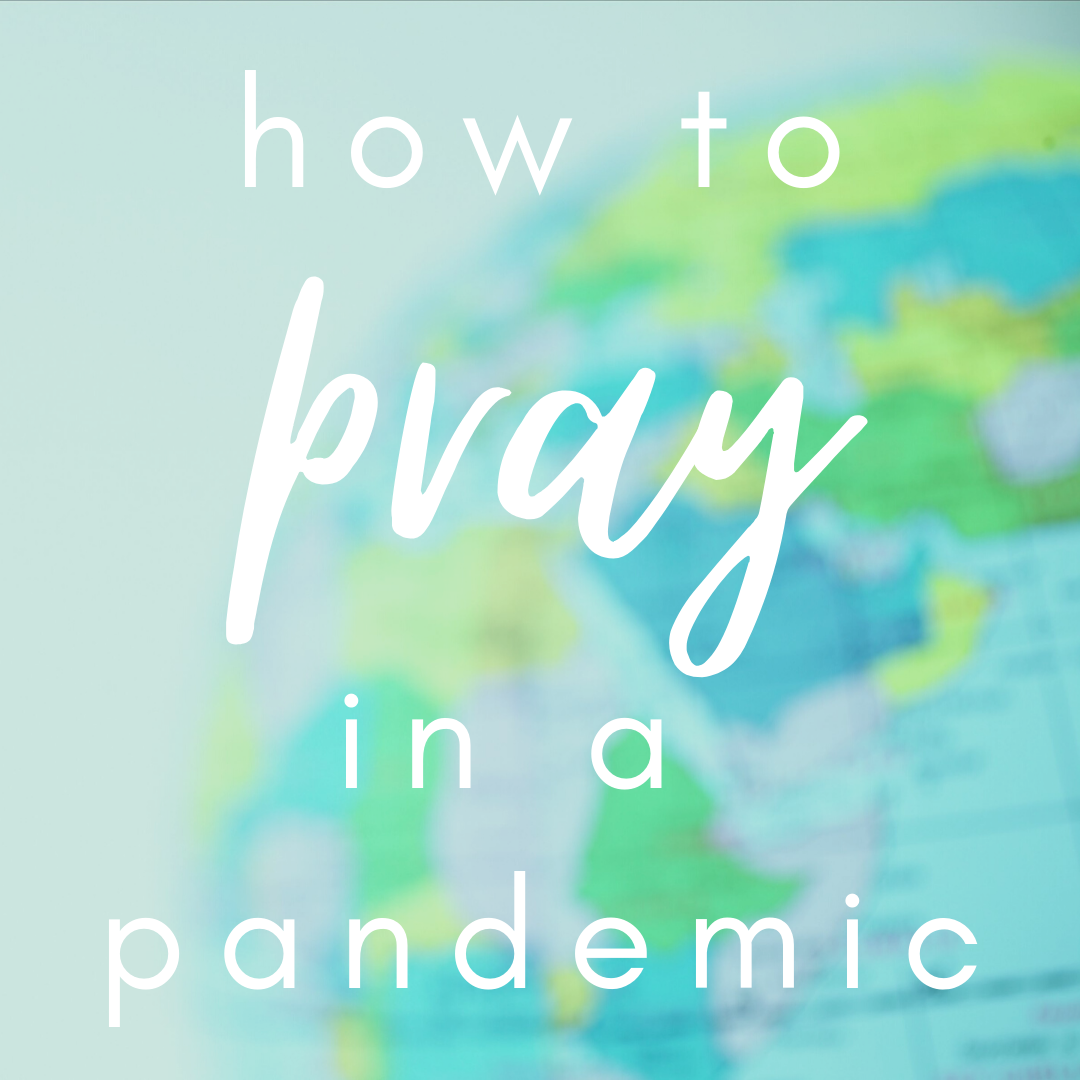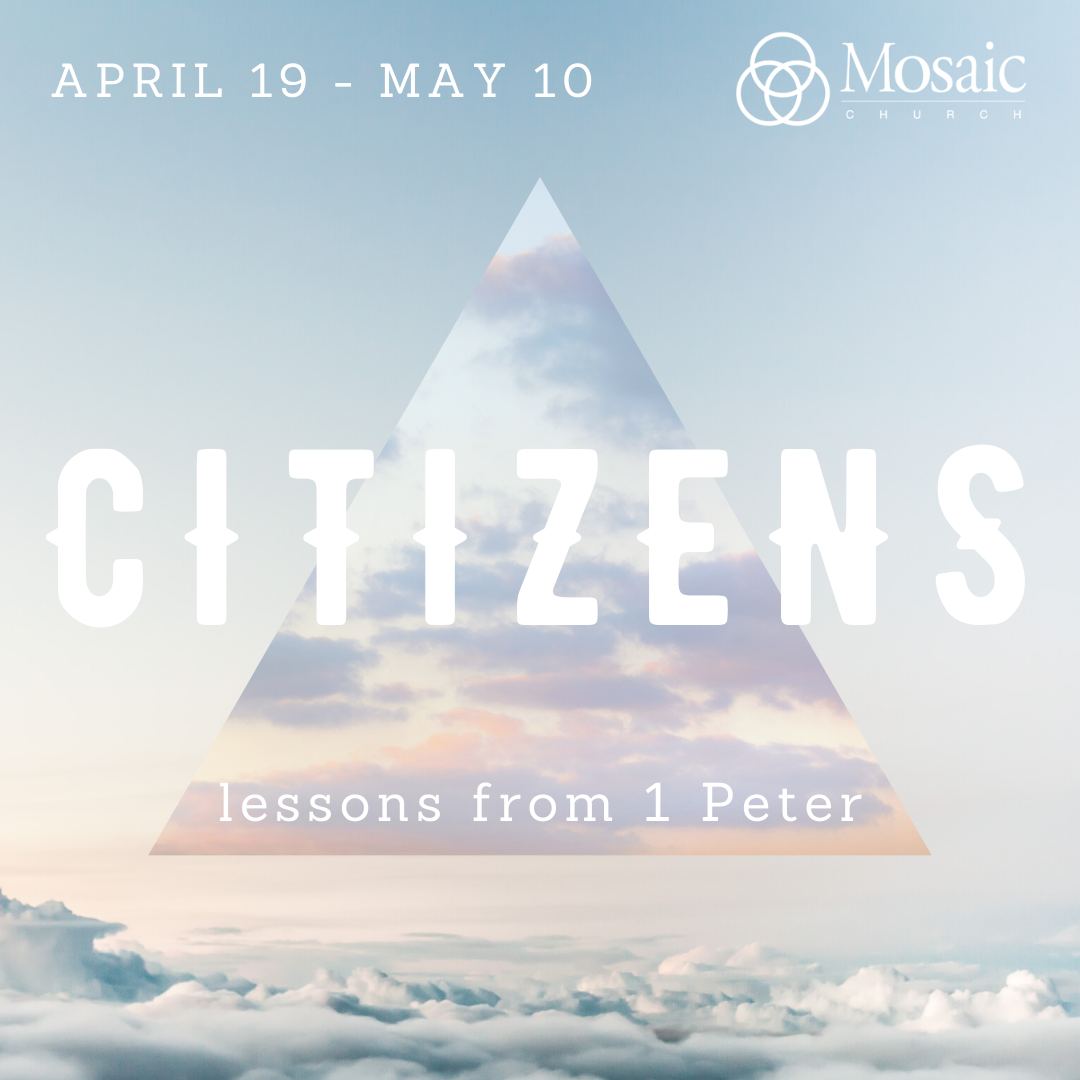
Love is Patient
We could all use a little love right now, couldn't we? But the answer is so much more than that one word. It's about how to communicate in stressful times, how to disagree without dismantling each other. This is about connecting with the character of Christ so we can see past pain to people. It's about remembering who we are as a community commissioned to love God and love others . . . even those that are, at times, hard to love. Because until we get this love thing right, nothing else matters.

Let The Church Be The Church
So much of the national conversation has placed the Church and its pastors at the center of both the pandemic and our national unrest. In a world that is looking to the Church to lead it through this wilderness, what is our part? How do we respond so that our presence is prophetic, peace-bringing and Kingdom-centered? This Sunday as we gather together after three months apart, we'll take time to remember what it means to be the Church - both to each other and to a watching world.
Topics: Salt & Light, The Church

Where Do We Begin?
Let's talk about a biblical response to racial injustice, as we listen to David's wisdom in Psalm 139.
Topics: Biblical Justice

Pentecost: We’re Not Drunk
A praying friend told me this week, "This is the Pentecost of Pentecosts!" He made that declaration as we talked together about so much spiritual movement that seems to be happening around the world. I mentioned some of what I'm seeing in last week's message. This week, we'll celebrate more Holy Spirit sightings as we talk together about the glorious gift of God's outpouring over the whole earth at Jesus' ascension. Be encouraged, friends! In the midst of hard things, there is a move! "See" you Sunday.
Topics: Holy Spirit, Pentecost

How To Pray In The Pandemic
Most of us talk about prayer more than we actually pray (if that's you, its okay to admit it). And for most of us, that's because we don't really know how to pray (and if that's also you, its okay to admit it). Not knowing actually puts us in decent company. The disciples also asked Jesus to teach them how to pray.
And if we don't know how to pray on our good days, then oh my! how much harder is it to pray during a pandemic? If you're struggling to know how to pray or what to pray, this Sunday's message is for you. We'll talk about how to pray when things are hard, and how to hear the voice of God. Friends, God does hear our prayers. Let's lean in and learn to pray effectively.Pray
Topics: Prayer

Peace-makers
"Don't drown in the shallow end." That's this week's message in six words. James (brother of Jesus) teaches us how to get peace, become peacemakers, and how to practice the best of the grace-filled life. This week, we continue our quest to understand what it means to be a Kingdom citizen.
Topics: Kingdom Citizenship, Peace, Peacemakers

Sent
As citizens of the Kingdom of God, we are sent as ambassadors to a lost and hurting world. How we go determines how the world receives the heart and mind of Christ. How will you embrace and live out your sentness, so that your example in the world is attractively other-worldly?
Topics: Sent

Special
If we carry the spirit of Christ, how could we not be special? The gifts of God that we inherit as citizens of the Kingdom of God are precious, and they are gifts to be honored even when they put us at odds with the world around us. And they will! Peter teaches us that when we put our primary allegiance in the Kingdom of God, we will often seem peculiar to a world at odds with God’s values. How do we live out our unique identity in such a way that we become more attractive and more influential in world hungry for better examples of Kingdom greatness?
Topics: Kingdom Citizenship, Special

Royal
Royalty is not a native to our culture but for most of the history covered by the Old and New Testaments, royalty was how leadership was described. And as with contemporary examples, royalty was very much a family affair. People were royal by blood. It was an inherited status, which means most of us never have a shot at claiming royal status on human terms. The great news, though, is that we who claim citizenship in the Kingdom of Heaven do indeed have royal blood pulsing through our veins. Now, we are led to discover all that means for us as we claim our royal inheritance.
Topics: Kingdom Citizenship, Royal

Chosen
How does our citizenship on earth relate to our citizenship in the Kingdom of God? Paul once reminded the Philippians that “we are citizens of heaven, where the Lord Jesus Christ lives. And we are eagerly waiting for him to return as our Savior” (Philippians 3:20). Peter takes that concept and unpacks it beautifully in his first letter to the early Church. He teaches us how our heavenly citizenship plays out on on earthly plane, and he reminds us of our core identity as citizens of Heaven.
Topics: Chosenness, citizenship